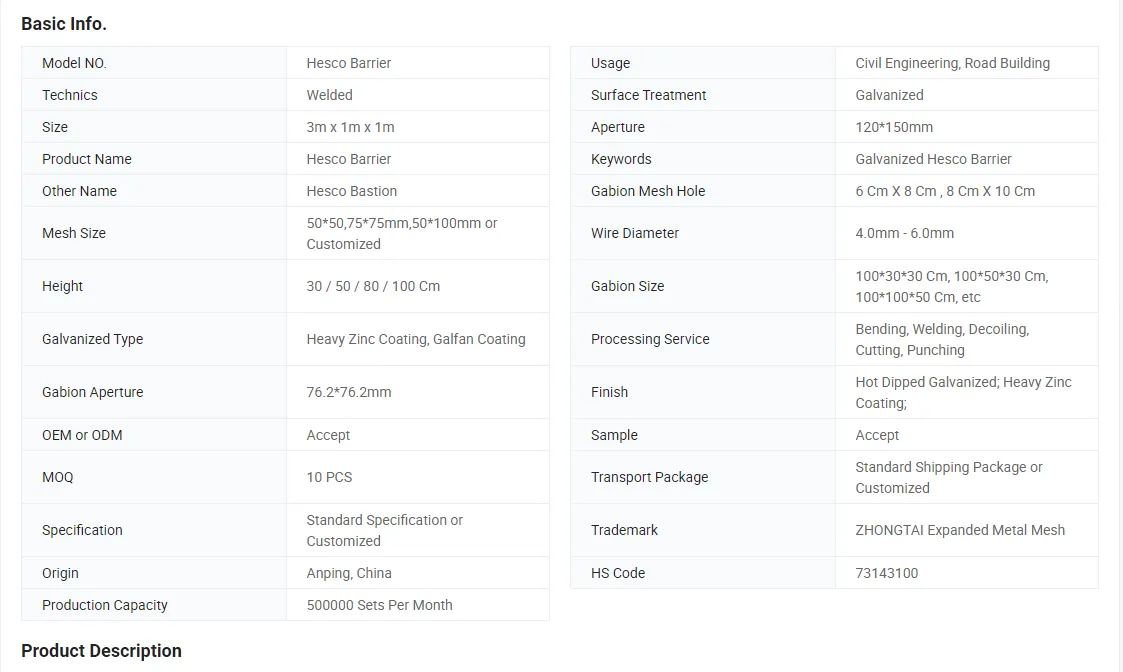Types of Welded Wire Fencing
Welded wire fencing is a popular choice for a variety of applications, offering durability, strength, and versatility. Its construction consists of wires that are welded at their intersections to create a grid-like pattern. This method of manufacturing provides several advantages over traditional fencing materials, such as wood or woven wire. In this article, we will explore the different types of welded wire fencing available on the market, each designed to meet specific needs and preferences.
1. Standard Welded Wire Fencing
Standard welded wire fencing is typically made from galvanized steel, making it resistant to rust and corrosion. This type of fencing is widely used for residential and commercial properties because it provides a clear boundary without obstructing views. The grid design allows for visibility and airflow while keeping pets and small animals contained. Standard welded wire fencing is available in various heights and gauge thicknesses, making it adaptable for different projects, such as garden enclosures and property perimeters.
2. Field Fencing
Field fencing, also known as agricultural welded wire fencing, is designed for larger areas such as farms and pastures. This type of fencing typically features a heavier gauge wire and wider openings, making it suitable for containing livestock. The sturdiness of field fencing ensures it can withstand the considerable force from larger animal movements. Additionally, many field fencing options are treated to resist corrosion, which enhances their longevity even in harsh weather conditions.
3. Stainless Steel Welded Wire Fencing
For environments requiring enhanced resistance to rust and corrosion, stainless steel welded wire fencing is an excellent choice. This type of fencing is particularly useful in coastal areas where saltwater can quickly deteriorate other materials. Stainless steel fencing maintains its integrity and appearance over time, making it an ideal option for both aesthetic and functional applications, such as gardens, patios, and pools.
types of welded wire fencing

4. Chain Link Fencing with Welded Wire Panels
Combining the benefits of chain link materials with welded wire panels results in a unique fencing solution. This system consists of chain link fabric complemented by welded wire panels to create a more robust barrier. Such fences work well in situations where security is a top priority, such as industrial sites or construction areas. The added strength from the welded panels helps prevent breaches while maintaining visibility.
5. Custom Welded Wire Fencing
Custom welded wire fencing allows for the incorporation of various sizes and designs to meet specific needs. Property owners can request unique shapes, heights, and finishes to ensure the fence aligns with their property's aesthetics and intended use. This type of fencing is particularly popular for decorative purposes, offering a perfect blend of form and function.
6. Electric Welded Wire Fencing
Electric welded wire fencing combines traditional welded wire with an electric fencing system for enhanced security. This type of fencing is often used in areas where security is paramount, such as commercial properties and high-security installations. The setup consists of welded wire panels augmented with electric wires that deter potential intruders while maintaining an effective barrier.
Conclusion
Welded wire fencing encompasses a variety of styles and types, each catering to diverse needs and applications. From standard residential options to specialized agricultural and security-focused designs, the flexibility this fencing can provide is unmatched. When selecting a welded wire fence, it's crucial to consider factors such as intended use, strength requirements, and aesthetic preferences. With the right choice, welded wire fencing serves as a reliable and long-lasting solution for any property.
-
Why Galvanized Trench Cover Steel Grating Resists Corrosion
NewsJul.10,2025
-
The Versatility and Strength of Stainless Expanded Metal Mesh
NewsJul.10,2025
-
Load Calculations in Steel Grating Platforms
NewsJul.10,2025
-
Keeping Pets and Kids Safe with Chicken Wire Deck Railing
NewsJul.10,2025
-
Hole Diameter and Pitch for Round Perforated Metal Sheets
NewsJul.10,2025
-
Aluminium Diamond Mesh in Modern Architecture
NewsJul.10,2025
Subscribe now!
Stay up to date with the latest on Fry Steeland industry news.

